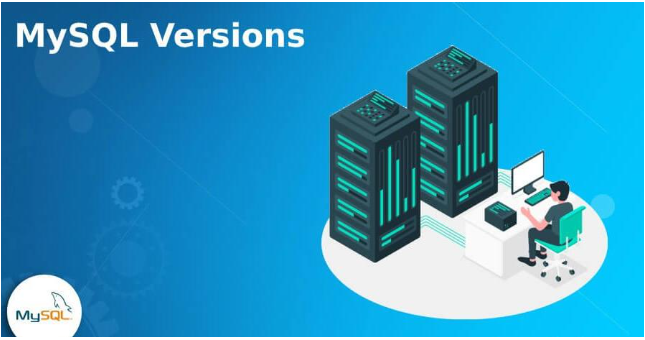MySQL – Editions

MySQL Versions, a technique that follows a sequence of numbering to track some information on MySQL, is a kind of challenging way to keep updated on the current and upcoming versions which contain improved functions and resolved solutions to any error bugs found in the previous versions.
Versioning is a method used to classify both distinct versions of a software program and names of any version. Version 1.0 refers to the initial release of a program; there is no decided format rule for versioning by any industry or company standards, so they are free to use their own planned methods for assigning it.
Different MySQL Versions
When installing the MySQL server, you must first select the version and distribution format. The two options are Development Release (DEV) and General Availability Release (GA). DEV is considered a development release, which includes the latest features but is not recommended for production use. GA is considered a production release, which defines a stable or production release and majorly applies to production use. Thus, you must agree to choose the most current GA release.
For working with MySQL, the recent support is version number v5.8 and it includes several important changes, containing new features addition and removal, fixed bugs as wells as security issues, and so on. This specific version comprises of the release history from ange MySQL 8.0 to MySQL 8.0.21. This means the support is available from April’2018 to April’2026.
The MySQL database is recognized by four attributes: alpha, beta, gamma and finally production.
1. Alpha
The version number of MySQL indicates a period of development during which new features and functions are expected to be added. During this time, developers work to remove errors and test the new features of MySQL.
2. Beta
This attribute indicates that the version is essentially complete, but still needs to be thoroughly tested. Main changes are unpredictable.
3. Gamma
The previous beta version has become somewhat more stable and we can proceed with our goal of finding out errors, resolving them and moving forward.
4. Production
This final attribute in MySQL version is responsible for informing MySQL developers that the software is now ready, stable and mature enough to be used for mission critical commitments.
The final attribute of the MySQL version is responsible for informing developers that it is now ready, stable and mature enough to be used for mission-critical applications.
In 2008, the MySQL AB turned into advanced by using solar Microsystems. Until MySQL five.0, the primary inner release become on 23 may also 1995 but because the documentation the model 5.Zero had a few quick comings that regarded in tables. Once more, after launch of MySQL version 5.1, it turned into found that the version support turned into negative for statistics warehousing, incorrect result bugs and crashing, and also unsteadiness to perform unique CPU cores for coping with a unmarried question. As a result, on 27th January 2010, sun Microsystem was received by way of Oracle.
After that, the subsequent are launched with subsequent improvements and new capabilities further.
Allow us to see the history of the release of preceding MySQL variations listed as follows:
1. MySQL 5.1
It was released in production on 27th November 2008, and support ended in December 2013. In addition to MySQL server 5.0 to MySQL server 5.1.73 versions, it includes event schedulers, plugin APIs, partitioning, server log tables, and row-based replication.
2. MySQL 5.5
It was released on 3rd December 2010 and ceased to be supported on December 2018. This release included MySQL server 5.5 to MySQL server 5.5.62 versions with InnoDB as the default storage engine supporting referential integrity constraints and transactions.
3. MySQL 5.6
The version was released on 5th February 2013 and support ended on February 2021. MySQL server 5.6 and MySQL server 5.5.45 versions were released, bringing enhanced performance to the query optimizer, memcached APIs in the NoSQL style, advanced transactional output in InnoDB, and the TIMSTAMP column type support.
4. MySQL 5.7
In October 2015, it was released, and support will end in October 2023. In this release, MySQL server 5.7 is released along with MySQL server 5.6.27, which provides native JSON support as defined by RFC 7159.
5. MySQL 8.0
Latest version released 19th April 2018 and supported until 2026. It includes the releases of MySQL server 8.0 to MySQL server 8.0.21 versions. It consists of atomic and crash-safe DDL(Data Definition Language ) sentences, NoSQL Document Store, JSON Extended syntax, also new functions like enhanced sorting, JSON table functions, data dictionary, account and security management, resource and table encryption management, InnoDB enhancements, character set support, window function, data type support optimizer enhancement, and partial updates.
